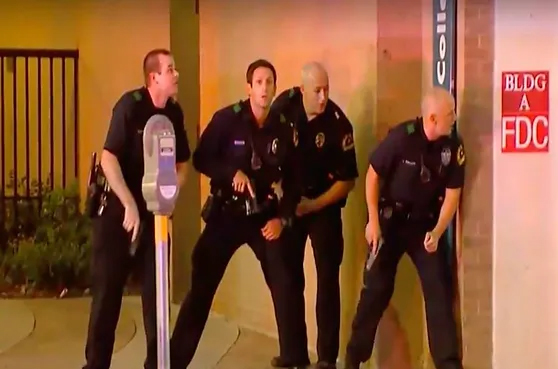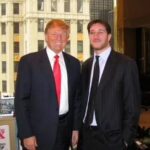On the morning of July 7, Sgt. Michael Smith of the Dallas Police Department kissed his 9-year-old daughter Caroline goodbye as he headed off to his shift, and a terrible thought struck him.
“What if this is the last time you ever kiss me or hug me?” he asked, according to Caroline’s later account to CBS News. It was the result of some ominous intuition because, as we know all too well, it was indeed the last time. Michael and 13 other cops were gunned down on the streets of Dallas that day while keeping order and managing traffic at a protest rally. Michael was one of five who would never come home from the ambush.
We would barely have time to process the horror when it happened again: Three more would die just 10 days later in Baton Rogue, La. at the hands of another crazed gunman, with three more injured. Both shootings were ostensibly tied to anger over recent police killings of unarmed black men that are under investigation.
President Obama rightly declared that the murders were “cowardly and reprehensible”, while then declaring that there is “no justification” for the killing of cops. “They right no wrongs. They advance no causes.”
Why even present the other side of an argument that should not exist in the first place? Who believes this was justified or part of a cause? That there is some shred of logic and purpose to a war on police?
Few people, as far as public statements. But you could hear many interviewed in the streets, and many commentators walking a rhetorical tightrope, with words to the effect of “I don’t support the shootings” – wait for it – “But…”
In a July 19 USA Today column, Tavis Smiley urges us to “listen to the Baton Rouge killer.” He writes “How many more disaffected black men have to self-radicalize before we take their claims seriously? … We can call them lone wolves, deranged, cowardly and reprehensible until we’re blue in the face. But you know what I call them and many others in their generation? Discontented. Demonized. Disavowed.”
In doing so, he ascribes some blame for the violence to society, rather than hold the killers entirely liable for their actions.
Comedian and HBO host Bill Maher went even further, saying that he does not condone the shootings, “but I do understand it … How many videos can you see? How many years can go by when this is going on when black people are brutally assaulted? … I’m surprised somebody did not fire back sooner.”
It is gracious of Mr. Maher not to support the wanton murder of a human being simply by virtue of his or her occupation and uniform. It would be difficult, after all, to rationalize that this is any better than accepting the murder of a person based on race, religion, national origin or some other trait.
But shooting “back” means returning fire while under fire. Hours later, in cold blood, in another city, with uninvolved people is not revenge or retaliation or rebellion.
It is not a phase in a cycle of violence, no more than killing office workers in San Bernardino or night club patrons in Orlando or joggers in the Boston marathon is “retaliation” for any government-sponsored violence by troops or jet planes or drone strikes or American policy in another part of the world. It’s just murder. Period.
I understand the anger caused by incidents of questionable or blatantly unacceptable conduct by police, and the tendency of officers in such cases to get off scot free. Successful prosecutions seem to be rare, leading to a heated debate.
But if the shooter in Dallas (I will not mention the killers’ names as they deserve no publicity) was so concerned about the misdeeds of cops in St. Paul, Minn., and Baton Rouge, La., why did he attack cops in Dallas who were protecting the rights of protesters?
And why did the shooter in Baton Rogue target a black cop, Montrell Jackson? None of the 19 cops involved had any connection to the incidents that touched off the protests.
Rational people around the world address grievances through peaceful activism, sometimes civil disobedience, and this has moved governments to action, toppled walls and dictators and forced the passage of just laws. Indiscriminate assassination and ambush cannot lead to anything constructive.
The killers of these cops each had a history of dysfunction and erratic behavior that predates the incidents in Louisiana and Minnesota. If society is at all to blame, it is for the notoriety we give mass shooters in the media — and sometimes excessive analysis of their motives — coupled with ridiculously easy access to guns. Their acts were nothing more than wanton murder by unstable people seeking to link their homicidal urges to a cause in order to be celebrated as a hero.
Let’s not elevate them by using their crimes and the words “justifiable” in the same sentence.
Originally Published: The Huffington Post



